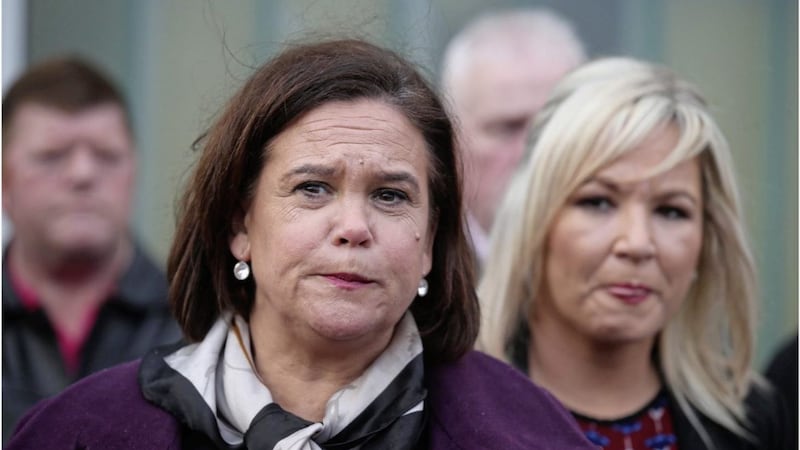THE Seanad leaders of Fine Gael and Fianna Fáil would do well to reflect on their contribution to the order of business, Tuesday week ago, when in their haste to criticise Sinn Féin they gratuitously insulted relatives of those who died in the conflict.
The insult was all the more hurtful, I would suggest, because it was an insult by omission - in other words the relatives were not even considered, as both parties competed with each other to prove who was the shrillest opponent of Sinn Féin.
And while Sinn Féin is well able in the 'cut-and-thrust' of parliamentary debate to give as good as is dished out to it, the 'insult by omission' is the 'tip of the iceberg' of long-standing and deep-seated prejudice against northern society and its people, particularly republicans - prejudice which often loses its sense and sensitivity as it did on this occasion.
It reflects a fundamental failure of the southern state, its government, parties and institutions, nearly one hundred years after partition, to end its policy of shoring up partition and the remnants of its undemocratic, unjust, violent and oppressive northern state.
These parties, knowingly and worryingly, apply normal standards of democratic assessment to an undemocratic political system with a hidden and sinister hand which regularly threatens to destabilise the progress made in the peace and political processes by undermining the Good Friday Agreement.
This is obvious when the implications of Brexit are considered; beginning with the British government ignoring the democratic will of the people of the north to remain in the EU, yet being dragged out of it at the behest of a minority vote and party, the DUP.
Not to mention the economic threat posed by Brexit to Ireland's economy north and south - a threat which barely raises an eyebrow of concern in British government and unionist circles.
Add into this mix the lengths to which the British government has gone to protect itself against the truth being revealed about its involvement, through its armed state forces and loyalists in the killing of hundreds of nationalists.
Two weeks ago, Fine Gael and Fianna Fáil faced a simple choice: respond to the shocking, but all too familiar news, that the police service had deprived families of information which could have helped them in their search for the truth into the killing of 30 of their relatives or comment on Sinn Féin president Mary Lou McDonald's perfectly understandable and correct remark that the north's new chief constable of the police should not be recruited from within the PSNI.
Both parties chose the latter.
Beyond the Seanad debate, those who responded with hostility to Mary Lou McDonald's remarks care little for the relatives or the search for the truth.
To suggest, as many did, that to make such a call was unnecessary 'political interference' is absurd; it was not 'political interference' when Fine Gael and Fianna Fáil TDs' criticisms of several Garda commissioners resulted in resignations.
If any police service in the world requires ongoing political interference it is the PSNI, given its roots in the RUC, its role in the conflict in the north and specifically its role in collusion with loyalists and the running of murder gangs.
The leadership of the PSNI are the gatekeepers of the RUC's sordid past and it is causing serious difficulties in the attempt to establish a new police service worthy of support by nationalists, who carry the human cost of state collusion.
The current chief constable of the PSNI, George Hamilton, made significant progress during his term in modernising and equipping the police to police impartially and to be accountable to the public.
He was helped by republicans at many levels to this end. And Sinn Féin and the SDLP publicly recognised his positive leadership.
But he made little progress on resolving the issue of collusion.
And the leadership of Sinn Féin regularly met him and his leadership team to express its concerns about the damage that this was doing to public confidence, especially nationalist confidence in the police.
The public and relatives of those killed in the conflict have been done a disservice by Fine Gael and Fianna Fáil taking the spotlight of the fact that intelligence files about multiple murders were withheld from the Ombudsman - much easier to bash Sinn Féin.








